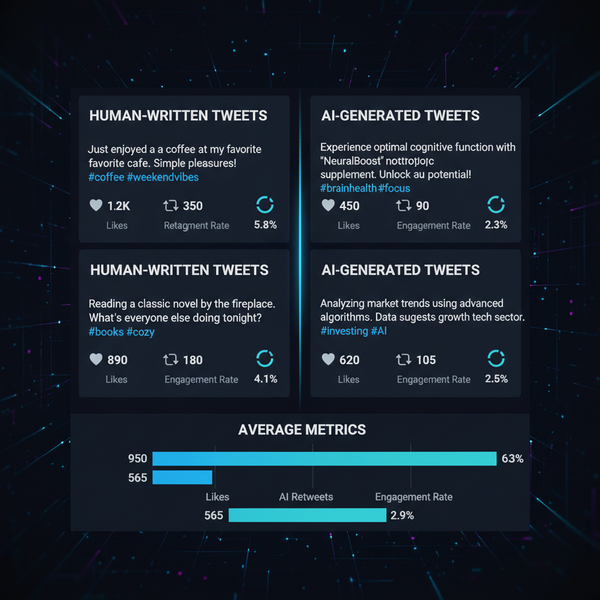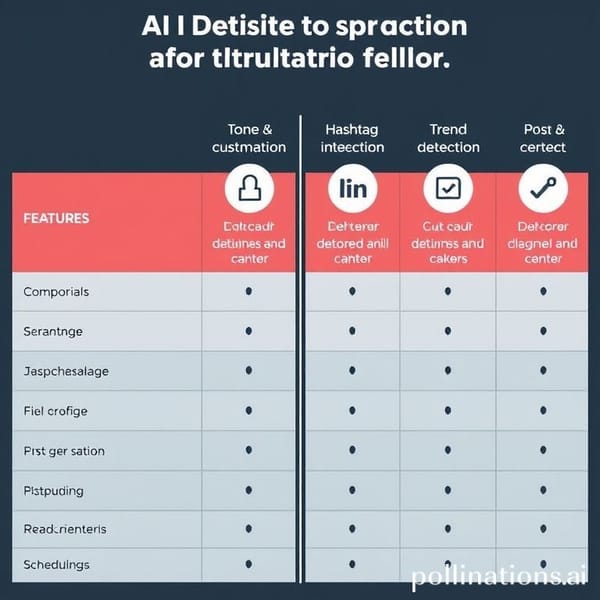How Often to Post on Social Media for Maximum Engagement
Learn the optimal social media posting frequency for each platform, how to find peak engagement times, and balance quality with quantity.
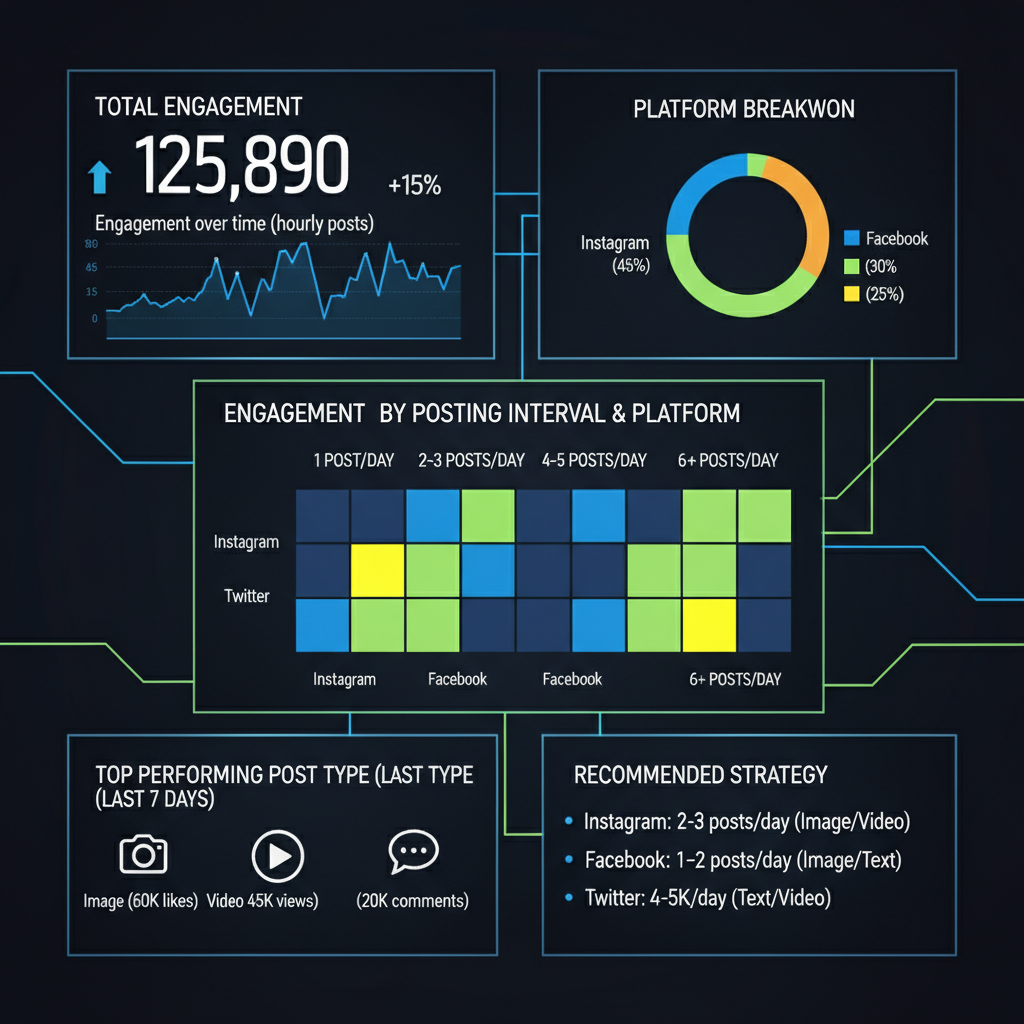
Understanding the Impact of Posting Frequency on Social Media Reach and Engagement
Determining how often you should post on social media is a pivotal factor in digital marketing success. The right posting cadence can significantly boost reach, engagement, and audience loyalty — but going too low or too high can have the opposite effect. This guide explores optimal posting frequencies across platforms, how to research peak times, and strategies to balance quality with quantity.
One of the most common challenges marketers face is identifying when their audience is most receptive. Posting too rarely can make your brand invisible in busy feeds, while posting too frequently may overwhelm followers and lead to disengagement. The key is delivering value consistently without triggering content fatigue.

A well-calibrated posting frequency helps you:
- Stay top-of-mind with consistent touchpoints
- Build a habitual connection with your audience
- Optimize your reach within the algorithm's favor
- Keep engagement high without diminishing returns
Platform Differences in Optimal Posting Frequency
Every social media platform operates on distinct algorithms and user behavior models. Understanding these nuances will guide your posting cadence for better engagement performance.
- Highly visual with emphasis on quality imagery and reels.
- Feed content is supplemented with Stories — allowing more frequent Story posts without overcrowding the main feed.
TikTok
- Fast-paced, trend-driven environment.
- Higher frequency often rewarded, but relevancy to trending sounds and challenges is essential.
YouTube
- Long-form, evergreen content format.
- Algorithm prefers consistency more than sheer volume — weekly or biweekly uploads often work best.
- Strong reach with engaging, shareable posts.
- Posting 1–2 times per day can work for many pages; more should be tested cautiously.
- Professional networking with emphasis on high-value insights.
- 3–5 posts per week is often optimal for B2B engagement.
X/Twitter
- Real-time news feed where posts have short lifespans.
- 3–5 posts per day (including retweets and replies) can maintain visibility.
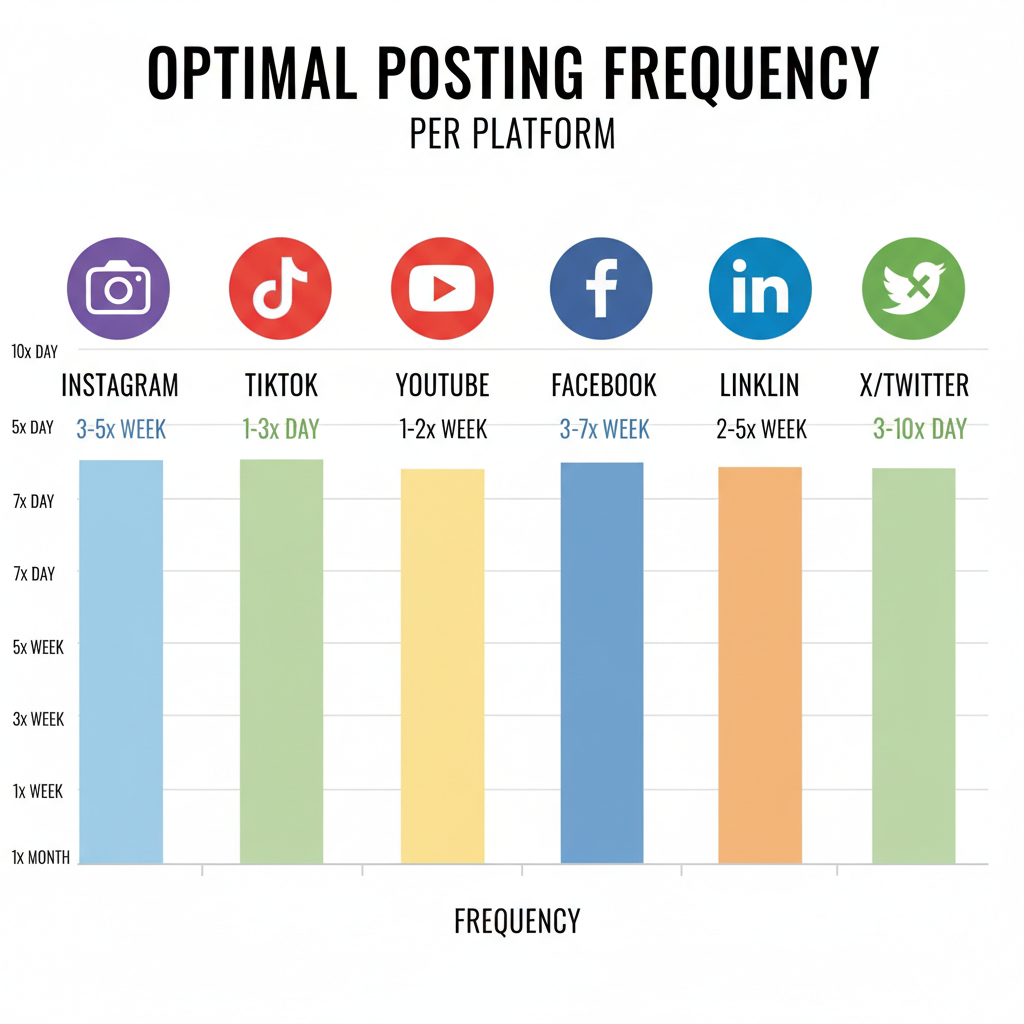
| Platform | Recommended Frequency | Content Type |
|---|---|---|
| 3–5 feed posts/week + daily Stories | Images, Reels, Stories | |
| TikTok | 1–3 videos/day | Short-form video |
| YouTube | 1–2 videos/week | Long-form video |
| 1–2 posts/day | Mixed media | |
| 3–5 posts/week | Professional insights | |
| X/Twitter | 3–5 tweets/day | Short text, links |
Researching Audience Activity Patterns and Peak Times
To refine how often you should post, understanding when your audience is most active is vital. General trends can help, but data from your own analytics is more accurate.
Tips for identifying peak engagement times:
- Use platform analytics (Instagram Insights, TikTok Analytics, YouTube Studio)
- Factor in time zones for global audiences
- Monitor engagement spikes post-publication and note recurring patterns
- Experiment with posting times across several weeks
Posting at peak moments can trigger early engagement bursts, prompting algorithms to distribute your content more widely.
Balancing Quality with Quantity to Avoid Content Fatigue
Increasing frequency can enhance reach, but without high-quality content, it risks alienating followers. Content fatigue occurs when audiences feel overloaded or perceive content as repetitive.
Methods to maintain engagement without fatigue:
- Rotate formats (videos, images, carousels, polls)
- Maintain narrative continuity over fragmented updates
- Focus on value-driven content rather than filler
- Watch for feedback cues such as negative comments or engagement dips
Recommended Posting Schedules Based on Industry Data
Industry benchmarks can serve as reference points for general brand accounts:
| Platform | General Audience Frequency | Engagement Priority |
|---|---|---|
| 4 feed posts/week | Visual quality + hashtags | |
| TikTok | 2 videos/day | Trend participation |
| YouTube | 1 video/week | Production quality |
| 2 posts/day | Shareable content | |
| 4 posts/week | Thought leadership | |
| X/Twitter | 5 tweets/day | Timely interactions |
These benchmarks are starting points. Fine-tune them based on your analytics and available resources.
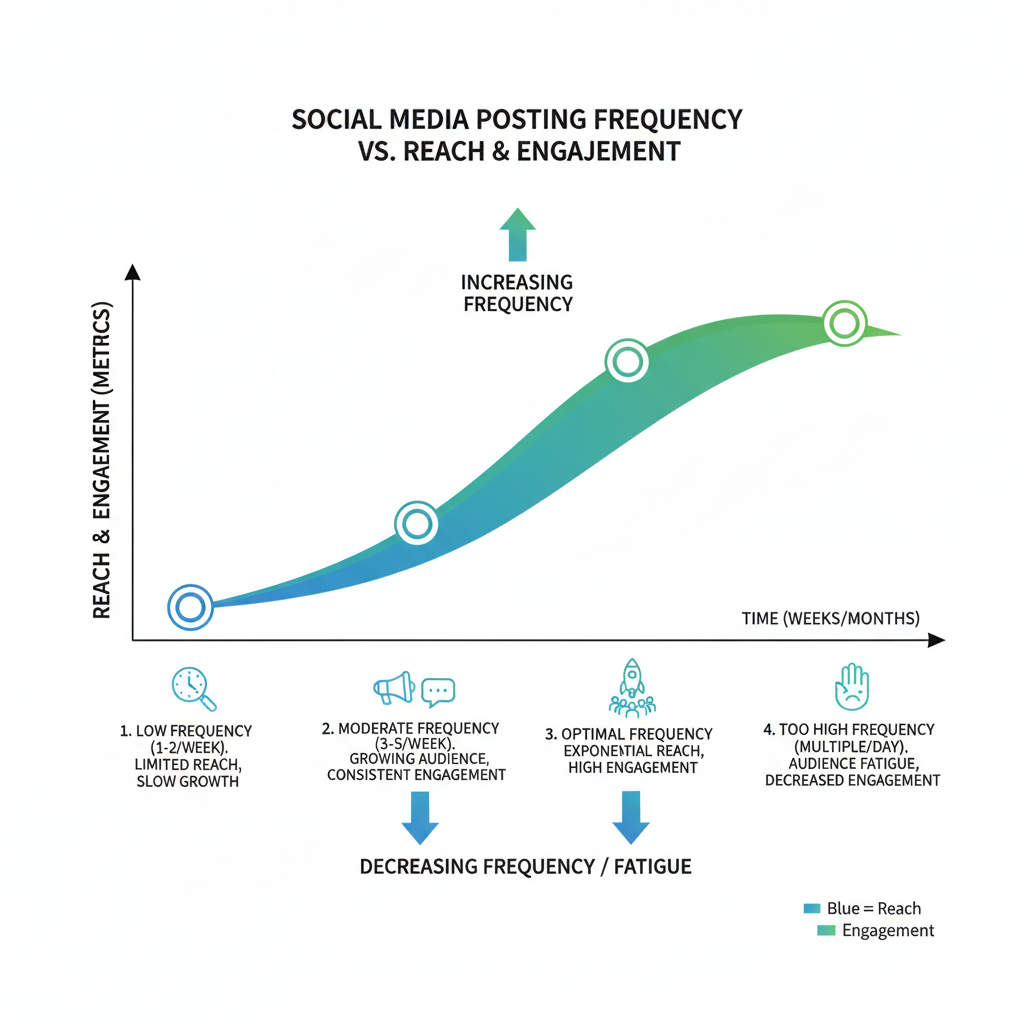
Adjusting Frequency via Analytics Insights
Consistently review metrics to understand the relationship between frequency and audience growth.
Monitor:
- Engagement rate: likes, comments, shares compared to reach
- Click-through rate (CTR) from link posts
- Follower growth rate
- Retention metrics for video content
Reduce frequency if engagement declines; maintain or slightly boost if performance holds or improves.
Seasonal and Campaign-Specific Posting Strategies
Marketing calendars should dictate fluctuations in posting frequency.
Examples include:
- Black Friday promotions — multiple posts daily across channels
- Product launches — teaser sequences pre-launch, heavier posting during launch week
- Seasonal themes — aligning with current seasons for relevancy boosts
Leveraging Scheduling Tools for Consistency
Scheduling tools are essential for publishing at optimal times without manual effort.
Top tools:
- Buffer
- Hootsuite
- Later
- Sprout Social
- Native platform schedulers like Facebook Creator Studio
Benefits:
- Plan content weeks ahead
- Publish at time-zone-optimized hours
- Access performance dashboards
Case Studies: Brands Nailing Posting Frequency
Case Study 1: Fashion Retailer
- Channels: Instagram, TikTok, YouTube
- Cadence: Instagram daily stories, TikTok 2 videos/day, YouTube weekly
- Results: 35% follower growth in 4 months and high-impact launch campaigns
Case Study 2: SaaS Company
- Channels: LinkedIn, Twitter
- Cadence: LinkedIn 4 posts/week, Twitter 4–5 tweets/day
- Results: 28% increase in qualified leads from social
Common Mistakes When Increasing Posting Frequency
Avoid:
- Skipping analytics review — generic advice may not fit your audience
- Recycling low-quality content — harms credibility
- Neglecting interaction — more posts mean more chances to engage
- Overposting during low-activity periods — may dilute impact
---
Summary: Deciding how often you should post on social media requires attention to platform norms, analytics insights, audience activity patterns, and content quality. By aligning your frequency with these factors and leveraging scheduling tools, you can maximize engagement while protecting your audience from fatigue. Start with industry benchmarks, adjust based on data, and integrate seasonal campaigns for optimal impact.
CTA: Test your ideal posting cadence this month — track your analytics, refine over time, and watch your reach and engagement grow.


